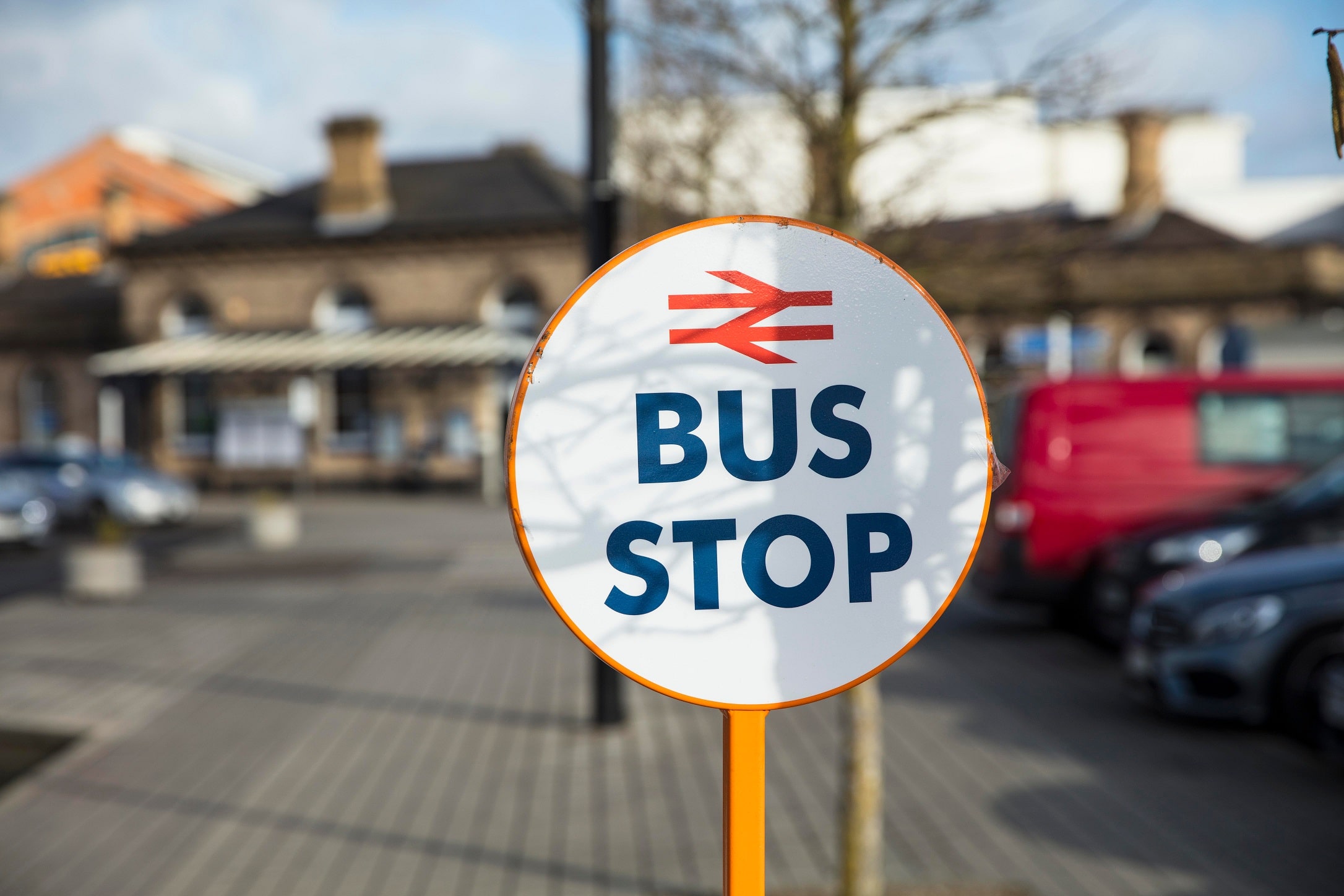It’s hard enough maintaining a PSV O-Licence efficiently in a market governed by strict rules and legislation, yet operators have so much more to deal with on a daily basis. Croner-i Passenger Transport brings together all the information a road passenger transport operator needs to remain compliant.
Croner-i offers advice on maintaining an O-Licence in the UK, employment and driver issues and practical information for coach operations throughout Europe. In this month’s routeone column, it looks at operators’ responsibilities in the world of rail replacement.
Rail replacement and drivers’ hours
How often is it that, when switching on the radio in the morning, there is an announcement on the travel news along the lines of “all trains from Hullaballoo Central to Chaostown Central are cancelled’?
Most of us are unaffected. But what happens to those who rely upon the train for work, school or to visit relatives? Are they left to make their own way? No. Generally, an emergency rail replacement service will be provided.
However, there may also be planned rail works, where lines are going to be closed for a period while repairs or upgrades are undertaken.
Here we look at two different situations in the context of drivers’ hours – emergency rail replacement services and non-emergency ones – and the records that are required.
What constitutes an emergency?
Under EC Regulation 561/2006, Article 3(d) states that these rules do not apply “to vehicles used in emergencies or rescue operations”. But there is no definition of emergency.
However, the Department for Transport, in its guidance Emergency Exemptions and Temporary Relaxation of Drivers’ Hours and Working Time Rules, would consider that it would include those situations defined within regulations for GB Domestic Regulations.
The Drivers’ Hours (Passenger Vehicles) (Exemptions) Regulations 1970 defines an emergency for passenger vehicles as an event that causes, or is likely to cause, a serious interruption in private transport or in public transport (not being an interruption caused by a trade dispute) involving persons who carry passengers for hire or reward.

It is important to note that throughout any exemption, operators still owe a duty of care to other road users, and therefore, where possible, would be expected to use drivers who had time to fulfil the work.
Only where it becomes impossible to comply with regulations would a driver be permitted to breach them, and at that point a record of the breach and the purpose of the journey would need to be recorded.
If a driver had been operating under the EU Drivers’ Hours Regulations, then it would be expected that he or she still records all their activity throughout the day.
Rail replacement – non-emergency or planned
In many cases, the rail replacement service is not an emergency but is planned. In those circumstances, it is first necessary to clarify which regulations would apply, and it may be beneficial to review the legislation.
EC Regulation 561/2006 states in Article 3(a): “This regulation shall not apply to carriage by road by: Vehicles used for the carriage of passengers on regular services where the route covered by the service in question does not exceed 50km.”
Therefore, if the route is 50km or less it is exempt from EU Drivers’ Hours Regulations and a driver would be expected to operate under GB Domestic Regulations.
The route does not include the positioning journey to the starting location of the route, or the return journey after completing the route.
Regular Services are defined in EC Regulation 1073/2009 as: “Services which provide for the carriage of passengers at specified intervals along specified routes, passenger being picked up and set down at predetermined stopping points.”
Special Regular Services are defined as: “Regular services, by whomever organised, which provide for the carriage of specified categories of passengers to the exclusion of other passengers at specified intervals along specified routes, passengers being taken up and set down at predetermined stopping points.
“Special Regular Services shall include:
- The carriage of workers between home and work
- Carriage of school pupils and students to and from the educational institution.
“The fact that a special service may be varied according to the needs of users shall not affect its classification as a regular service.
“Special Regular Services do not require authorisation if they are covered by a contract between the organiser and the carrier.
“The organisation of parallel or temporary services, serving the same public as existing regular services, require authorisation.”
Therefore, it is imperative that the operator determines from the provider of the route whether it is over 50km, in order to determine whether the journeys are to be made under EU or GB Domestic Regulations and therefore, whether there is a legal requirement for records to be held.
What records are required?
For EU Drivers’ Hours’ Regulations: If the route is over 50km then the driver must record all the activity using a tachograph, including all manual entries that may be required to record the full extent of their working day.
However, if the driver is mixing EU and GB Domestic Regulations then the driver will be required to carry with them records of their other working days for the previous 28 calendar days should they be stopped at the roadside. This is in order that the rest periods, whether daily or weekly, are shown to have been taken.
For GB Domestic Regulations: On the face of it, a driver who works exclusively under GB Domestic Regulations has no requirement to keep a written record of their work.
However, for an operator, and particularly one that runs a mixed operation, i.e. EU Drivers’ Hours Regulations and GB Domestic Regulations, it is more complex.
At a recent Public Inquiry, the operator was expected to be able to evidence which journeys of the tachograph’s unknown driver movements were undertaken for the purpose of GB Domestic Regulations, maintenance, MoT or tachograph calibration. An operator is expected to have this information in order to comply with the undertakings on the O-License and prove that they have complied with drivers’ hours and record-keeping regulations.
Therefore, Traffic Commissioners are encouraging operators to ensure that they keep more than the records required to be produced at the roadside and to ensure that they keep records to evidence compliance.
Failure to be able to provide this information may lead to detailed investigations to ensure that drivers are not abusing the regulations.
The recommendation for all drivers who mix work (EU Drivers’ Hours Regulations and GB Domestic Regulations) during their duties is that they should record all their activity on their driver’s digital card. Driving for GB Domestic Regulations should be recorded as Out of Scope in order that it can be distinguished. Drivers should be aware of how to do that.
Don’t get caught out: Know the regulations
In summary, if the journey is for an emergency then the driver is exempt, but records, where necessary, still need to be made and retained. Any breach of the regulations must be recorded on a digital tachograph print-out, or the reverse of an analogue chart, which must be retained in accordance with the law.
When in doubt as to whether the matter is an emergency, it is recommended that the driver complies with the appropriate regulations and, should it become impossible to comply then this should be due to an unforeseen event, which was unknown and unexpected when the journey began.
If the journey is planned, then the regulations to follow are determined by the distance of the route to be covered. If over 50kms then the work is operated under EU Drivers’ Hours Regulations, while if 50kms or under then the journey is covered by GB Domestic Regulations.
The recording requirements under GB Domestic Regulations are that no written records are required, but if the driver does or may also operate under EU Drivers’ Hours’ Regulations then it is advisable that records are retained to ensure that the driver can evidence daily or weekly rest periods at the roadside.
If the driver does operate under EU Drivers’ Hours Regulations on the same day as undertaking a rail replacement under GB Domestic Regulations, then it is a legal requirement to record all that working day.
Readers of routeone can take advantage of an exclusive offer in conjunction with Croner-i that will enable them to gain discounted access to all the information they need to stay compliant.
Croner-i is offering readers of routeone a 10% reduction on the purchase price of an annual package to access the Croner-i online, members-only portal. That holds all the above information in an easy-to-access and understandable style.
For full details, please click here.
The previous Croner-i column in routeone looked at employment questions relating to the coronavirus COVID-19 pandemic.



























